Education emergency: Shoddy training makes for shoddy teachers
Despite millions spent, authorities responsible for training public school teachers are run by unqualified staff
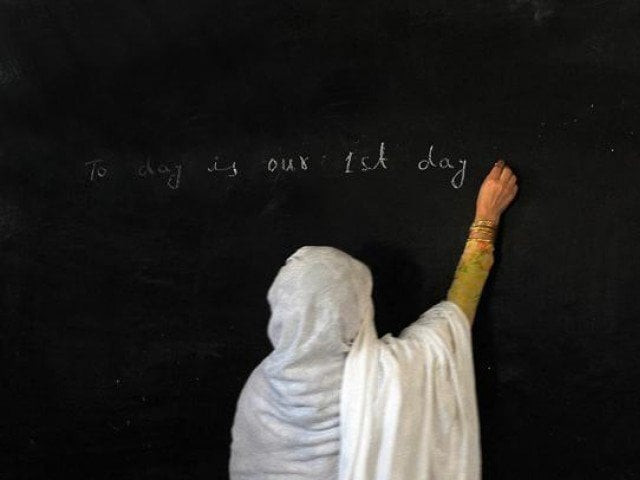
Representational image. PHOTO: FILE
From an obsolete curriculum to a lack of educational facilities, experts have time and again highlighted the myriad factors that contribute to such dismal results from public schools. One crucial aspect they have oft pointed is the standard of teaching available at government institutes. Compared to private schools in particular, public school teachers often rely on outdated methods that stack the deck against their students before they even begin preparing for exams.
What is especially shocking, however, is that such a situation persists despite the millions of rupees the Sindh government spent on arranging vocational training for teachers. In the current year, the provincial authorities are expected to spend more than Rs200 million under this head in total, sources said. Several million rupees, much of them sourced from foreign donor agencies, have already been spent, they added.
Disorganised training authorities
It has been learnt by The Express Tribune that authorities responsible for conducting teachers’ training in Sindh are themselves suffering from unqualified staff. What’s more, scores of positions within the institutes have been lying vacant and filling them does not seem to be on the agenda of the government.
K-P may forego testing agencies to hire teachers
Sources revealed that some of the teachers associated with the Sindh Teachers Education Development Authority (STEDA), the Professional Institute for Teacher Education (PITE), the Teacher Training Institute (TTI), and the Reform Support Unit (RSU) do not even have the professional qualifications necessary to provide vocational training to teachers in Sindh public schools.
Even if there is any type of vocational training being offered by these institutions, there is no follow-up assessment mechanism with regards to the skills imparted by the training which could be used to assess the professional skills of trained teachers.
Moreover, the PITE is functioning without a head for quite some time as a result of which the Executive Director of STEDA Abdul Majeed Bhurt has assumed the additional charge of the institute as its director-general.
A PITE officer, who spoke on the condition of anonymity, revealed that the institute has 211 allotted posts for teaching and non-teaching staffers out of which only 94 posts have been filled, while the remaining 117 are lying vacant.
“There are 49 academic posts in the institute where only 15 people have been appointed, meanwhile six posts for associate professors and six posts for assistant professors have not been filled,” he said. “Similarly, 10 lecturers are working on 19 posts, whereas only five senior instructors have been appointed to serve 18 different posts. The situation indicates that the institute is in dire need of restructuring itself so that it could ensure that training provided to teachers is up to the mark.”
Weak follow-up mechanism
When contacted, Abdul Majeed Bhurt admitted that the training provided to teachers across public schools in Sindh has been unable to affect the capability of students.
“The follow-up mechanism is weak, whereas teachers who are provided training do not use the skills they learn because they considered training a mere formality,” he said.
Bhurt, however, said that his institute has started a pilot project called the “Cluster Hub School,” under which trained teachers will be asked to undergo a follow-up course related to their training.
“Through the course, we will find out if teachers have learnt anything from the previous training or not,” he said.
Another STEDA officer, who also requested not to be named, said that two dozen posts at the STEDA have been lying vacant.
“Neither the higher officials at STEDA nor the provincial government have any interest in filling these posts. The STEDA is responsible for supervising different projects and not for providing training, which is the responsibility of PITE,” he clarified.
Foreign funding
It is important to note that PITE, which trains teachers in cooperation with the department of school education’s sub-body called the Reform Support Unit (RSU), has been training primary school teachers responsible for teaching the early childhood classes at government schools with the funding of the United Nations Children’s Fund (UNICEF).
The teachers that impart the training are paid Rs1,000 per day, while the Master Trainer is compensated with additional salary.
According to RSU officials, UNICEF recently awarded the Aga Khan Education Services with Rs3 million to train 72 Master Trainers.
The training will be provided to public school teachers by the Aga Khan Education Services staffers who will also ensure the provision of monitoring and vigilance services.
Shedding light on the matter, an RSU project manager said that the Reform Support Unit has recently completed the training of 1,358 teachers in four districts of Sindh with the support of the United Nations Educational, Scientific and Cultural Organisation (UNESCO) and the Aga Khan Education Services.
“For the first time, UNICEF has sent teaching kits to Pakistan for providing training to public school teachers. These kits are being sent to the district education officers (DEOs) in districts where teachers have completed their training,” he said.
The kit, which costs Rs1,000, contains detailed information on educating early childhood students. Even though it is one of the major initiatives by UNICEF to improve teachers’ vocational training, the relevant project manager agreed that the training provided to Sindh government school teachers in the past did not yield the results that they had hoped for. However, he added that the results of the current training would be seen in the next few years.
On the other hand, the Canadian International Development Authority (CIDA), is also providing training to teachers in Sindh with funding from the Canadian government.
Speaking to The Express Tribune, the CIDA project chief Ghulam Nabi Pathan said that the institute is training more than 7,000 junior school teachers (JSTs) in Sindh under the ‘LSBE’ (Life Skills Based Education) programme, which will continue in schools all over the province until December 07.
Govt under fire for sacking teachers in Kech
“The Canadian government has provided funding of Rs140 million for the project. In the second phase of the project, teachers will undergo Impact Assessment from January 20 to March 20,” he said.
It is pertinent to mention that the training of master trainers and teachers had been stopped in the past due to the non-availability of funds at CIDA. As a result, teachers who underwent training did not receive their compensation.
Upon questioning, however, no one at the organisation was prepared to talk about how the funds were utilised.
According to the head of RSU Zubair Channa, teachers know everything about their subject, but teaching is an art that most people entering the profession do not know.
“We have made several recommendations to the Sindh government related to teachers’ training and in this regard, a report will be released soon,” he said, adding that the RSU is paying Rs800 to Rs1,000 to teachers through the Sindh Government while the UNICEF is paying to the master trainers through the Aga Khan Education Services.
Published in The Express Tribune, December 3rd, 2019.


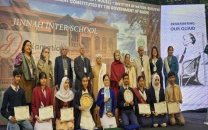
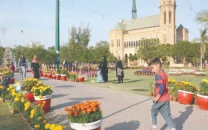
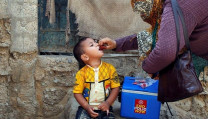

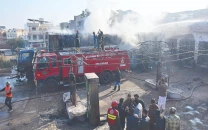











COMMENTS
Comments are moderated and generally will be posted if they are on-topic and not abusive.
For more information, please see our Comments FAQ